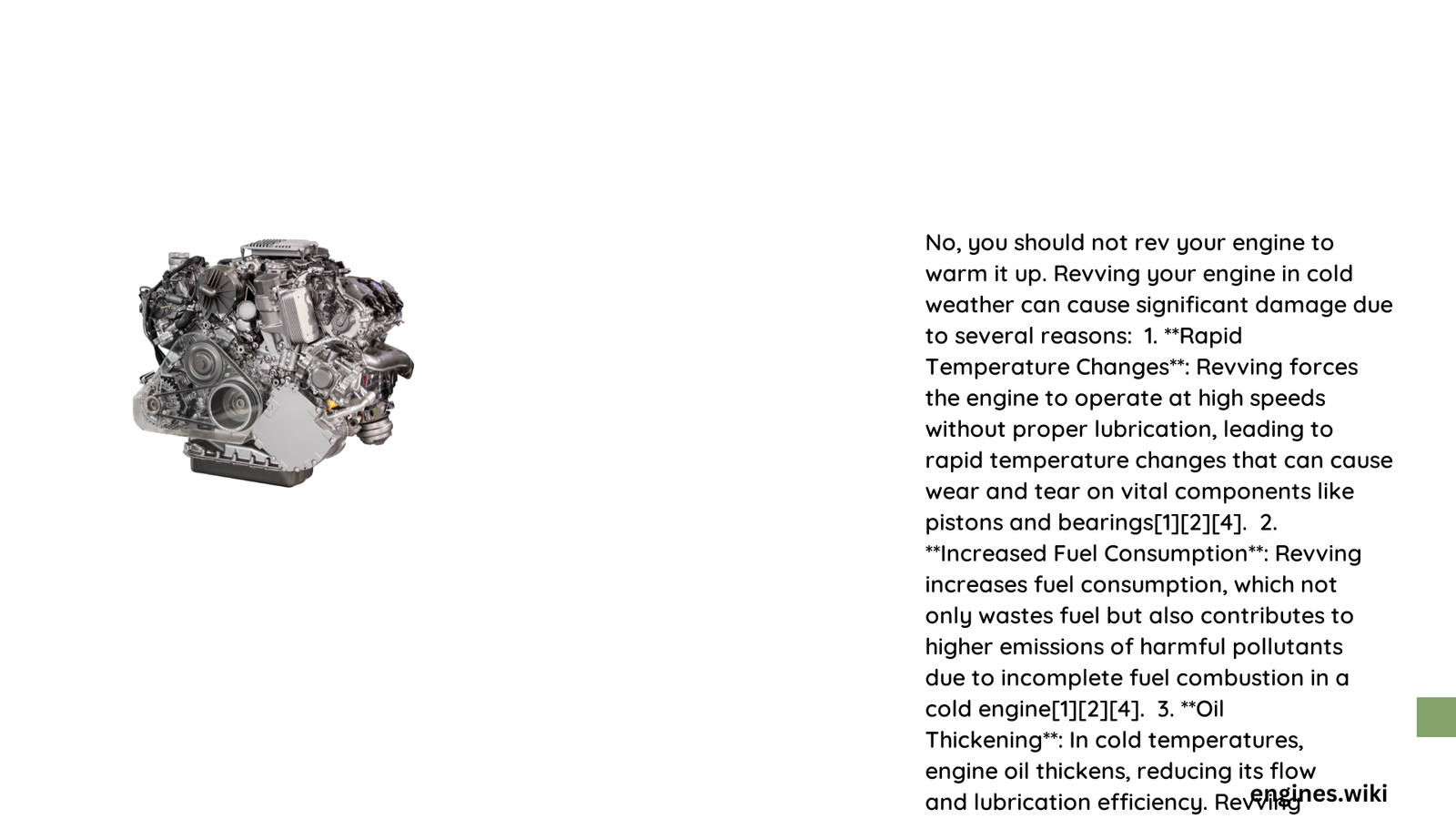Modern vehicle owners often wonder about the best practices for warming up their engines. Revving an engine might seem like a quick way to generate heat, but it can cause significant mechanical stress and potential long-term damage. Understanding the nuanced science behind engine warm-up is crucial for maintaining your vehicle’s performance and longevity.
What Happens When You Rev a Cold Engine?
Why Does Engine Temperature Matter?
When you rev a cold engine, several critical mechanical processes are disrupted:
- Uneven Heat Distribution
- Rapid temperature increases create localized stress points
-
Critical components like bearings and pistons experience uneven thermal expansion
-
Oil Viscosity Challenges
- Cold oil is thicker and less effective at lubrication
- High RPMs can cause insufficient lubrication before oil reaches optimal temperature
How Should You Warm Up Your Engine?
Recommended Warm-Up Techniques
| Engine Type | Idle RPM | Recommended Warm-Up Duration |
|---|---|---|
| Gasoline | 1000-1500 | 30-60 seconds |
| Diesel | 1000-1200 | 1-2 minutes |
Key Warm-Up Strategies
- Gentle Acceleration: Start with moderate, steady RPMs
- Avoid Extended Idling: Prolonged idling wastes fuel
- Drive Gently: First few minutes, keep speeds and RPMs low
What Are the Risks of Improper Engine Warming?
Potential Mechanical Consequences
- Increased Wear and Tear
- Metal-to-metal contact before proper lubrication
- Accelerated component degradation
-
Potential premature engine failure
-
Efficiency Reduction
- Disrupted combustion processes
- Increased fuel consumption
- Reduced overall engine performance
When Should You Take Extra Precautions?
Environmental Considerations
- Cold Climates:
- Consider using block heaters
- Allow slightly longer warm-up times
-
Use synthetic oils designed for low temperatures
-
High-Mileage Vehicles:
- More conservative warm-up approach
- Use specialized high-mileage engine oils
- Monitor engine performance closely
Pro Tips for Engine Maintenance
- Use Quality Engine Oil
- Choose oil viscosity appropriate for your climate
-
Follow manufacturer’s recommendations
-
Regular Maintenance
- Consistent oil changes
- Professional engine inspections
- Address minor issues promptly
Conclusion

Revving your engine to warm it up is not recommended. Instead, focus on gentle, gradual warming techniques that protect your engine’s long-term health and performance.
